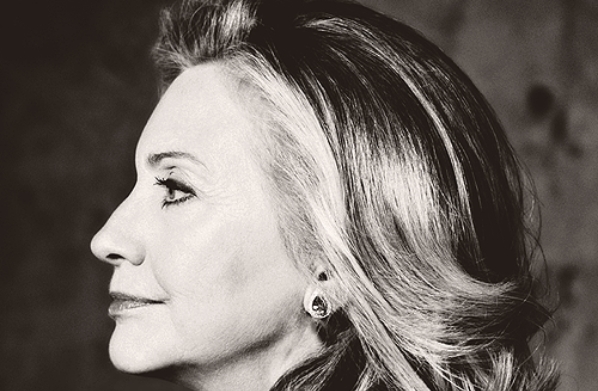It’s no secret that Hillary Clinton is running not only to be president, but to be the first woman president. It has been a cornerstone of her candidacy and has defined much of her campaign messaging.
It’s easy to understand why.
There’s no doubt it’s exciting to see how far women have come in recent decades: the educational accomplishments, the professional successes, the financial achievements and the political strides. That’s why, in many ways, Clinton on the top of the ticket should come as no surprise.
And the fact is the public is ready for a female president. New social-science research reveals that gender bias is way overstated. In fact, a research paper published in Perspectives on Politics reveals, “candidate sex does not affect journalists’ coverage of, or voters’ attitudes toward, the women and men running for office.”
The researchers conducted a robust investigation into the print-media coverage of 350 congressional campaigns, as well as survey data from the Cooperative Congressional Election Study to determine the impact media coverage had on voter opinion. And even across these hundreds of races, they found no indication of gender bias.
As many of us might expect — or at least hope — portrayals and opinions about candidates were the result of ideology, partisanship and incumbency — a candidate’s gender just wasn’t a factor. And it confirms the Independent Women’s Forum’s own research, which similarly found that the gender of a generic lawmaker made no difference to male respondents.
But despite this encouraging trend, Clinton — who admittedly has decades of experience in the public sphere, from her time as first lady to senator to secretary of state — has made gender the focal point of her candidacy.
Clinton launched her campaign with a rally focused on women, engaged “super volunteers” in anticipation of the media’s “gender bias” and stood quiet as her allies in the progressive feminist movement advanced a woman-as-victim narrative that Clinton is swimming upstream against a sexist current.
Surely, running for public office places unique challenges on women. Like it or not, there’s more scrutiny into a candidate’s appearance and discussion of her family life. And research shows that the modern-day campaign is not appealing to women. In fact the “noisiness of the campaign environment” — the 24-hour news cycle and the inattention to the issues that matter — may be the real reason women choose to stay out of the political fray.
But as the evidence increasingly suggests that the inflammatory rhetoric about gender bias is overstated, isn’t it time we focus more on the policies than the gender of our candidates?
Perhaps some historical perspective is helpful here. During the American founding, there was little tolerance for women’s participation in the political arena. Instead, women’s sphere of political influence resided largely within the home, where, through their roles as wives and mothers, they worked to ensure their husbands and sons adhered to republican principles — encouraging them to value limited government and civic virtue.
Even the social reformers of the 19th century, pushing for suffrage, were grounded in the Enlightenment principles of individualism and universal rights.
More than two centuries later, gender roles have clearly evolved and women are no longer on the sidelines. But in our modern quest for gender parity in politics — and our excitement to see a woman in the Oval Office — we ought to be careful not to overlook the importance of the principles that have motivated women from the beginning.
We should all want our first female president to be elected because of her accomplishments and vision for the nation — not simply because voters, particularly women voters, want a woman in the White House.
Clinton has tried to present herself as a champion for women’s rights. But the fact that she — like so many other progressives in Washington — supports policies and legislation that run counter to republican values will ultimately backfire on women and their families.
Whether it’s her support of government-run health care that will take ownership and control away from individuals, greater energy regulations that will drive up the cost of food and household goods, the artificial micromanaging of wages and benefit packages or her failed foreign policy — the vision and policies she advances gives government a starring role while leaving the American people backstage.
Women today have the freedom and opportunity to be political influencers. Still, ultimately, political values must outweigh the importance of gender.
?Sabrina L. Schaeffer is executive director of the Independent Women’s Forum.


